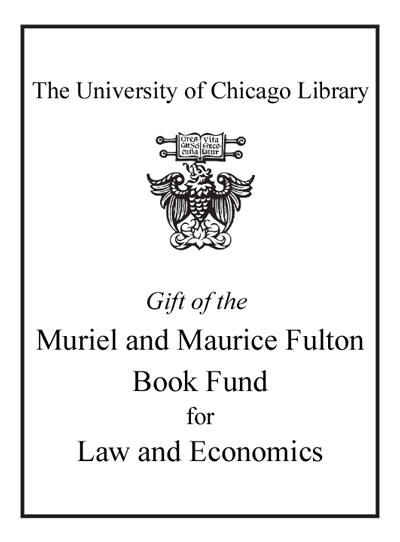|
|
|
|
| LEADER |
00000cam a22000008i 4500 |
| 001 |
11391043 |
| 003 |
ICU |
| 005 |
20180329150612.6 |
| 008 |
171024s2018 mau b 001 0 eng c |
| 010 |
|
|
|a 2017045401
|
| 020 |
|
|
|a 9780674976429
|q (hardcover : alk. paper)
|
| 020 |
|
|
|a 0674976428
|
| 035 |
|
|
|a (OCoLC)1006451857
|
| 040 |
|
|
|a MH/DLC
|b eng
|e rda
|c DLC
|d OCLCO
|d BDX
|d OCLCA
|d OCLCF
|
| 042 |
|
|
|a pcc
|
| 049 |
|
|
|a CGUA
|
| 050 |
0 |
0 |
|a QA76.9.D32
|b D44 2018
|
| 082 |
0 |
0 |
|a 005.8/24
|2 23
|
| 100 |
1 |
|
|a De Filippi, Primavera,
|e author.
|0 http://id.loc.gov/authorities/names/no2015171521
|1 http://viaf.org/viaf/7544149296252180670003
|
| 245 |
1 |
0 |
|a Blockchain and the law :
|b the rule of code /
|c Primavera De Filippi and Aaron Wright.
|
| 263 |
|
|
|a 1804
|
| 264 |
|
1 |
|a Cambridge, Massachusetts :
|b Harvard University Press,
|c 2018.
|
| 300 |
|
|
|a pages cm
|
| 336 |
|
|
|a text
|2 rdacontent
|0 http://id.loc.gov/vocabulary/contentTypes/txt
|
| 337 |
|
|
|a unmediated
|2 rdamedia
|0 http://id.loc.gov/vocabulary/mediaTypes/n
|
| 338 |
|
|
|a volume
|2 rdacarrier
|0 http://id.loc.gov/vocabulary/carriers/nc
|
| 504 |
|
|
|a Includes bibliographical references and index.
|
| 505 |
0 |
|
|a Part I. The technology: Blockchains, bitcoin, and decentralized computing platforms -- Characteristics of blockchains -- Part II. Blockchains, finance, and contracts: Digital currencies and decentralized payment systems -- Smart contracts as legal contracts -- Smart securities and derivatives -- Part III. Blockchains and information systems: Tamper-resistant, certified, and authenticated data -- Resilient and tamper-resistant information systems -- Part IV. Organizations and automation: The future of organizations -- Decentralized autonomous organizations -- Blockchain of things -- Part V. Regulating decentralized, blockchain-based systems: Modes of regulation -- Code as law.
|
| 520 |
|
|
|a Blockchain technology enables the creation of decentralized currencies, decentralized applications powered by smart contracts, self-executing digital agreements, and intelligent assets that can be controlled over the Internet. Blockchains also enable the development of new governance systems with more democratic or participatory decision-making, and decentralized (autonomous) organizations that can operate over a network of computers without any human intervention. These applications have led many to compare the blockchain to the Internet, with accompanying predictions that this technology will shift the balance of power away from centralized authorities in the field of communications, business, and even politics or law. Blockchain and the Law explores the benefits and drawbacks of this emerging decentralized technology and argues that its widespread deployment will lead to expansion of what we term lex cryptographia: rules administered through self-executing smart contracts.--
|c Provided by publisher.
|
| 650 |
|
0 |
|a Blockchains (Databases)
|0 http://id.loc.gov/authorities/subjects/sh2016002790
|
| 650 |
|
0 |
|a Technology and law.
|0 http://id.loc.gov/authorities/subjects/sh85133183
|
| 650 |
|
0 |
|a Data encryption (Computer science)
|0 http://id.loc.gov/authorities/subjects/sh94001524
|
| 650 |
|
0 |
|a Internet in public administration.
|0 http://id.loc.gov/authorities/subjects/sh2001002285
|
| 650 |
|
7 |
|a Blockchains (Databases)
|2 fast
|0 http://id.worldcat.org/fast/01981761
|
| 650 |
|
7 |
|a Data encryption (Computer science)
|2 fast
|0 http://id.worldcat.org/fast/00887935
|
| 650 |
|
7 |
|a Internet in public administration.
|2 fast
|0 http://id.worldcat.org/fast/00977260
|
| 650 |
|
7 |
|a Technology and law.
|2 fast
|0 http://id.worldcat.org/fast/01145264
|
| 700 |
1 |
|
|a Wright, Aaron
|c (Writer on law),
|e author.
|0 http://id.loc.gov/authorities/names/no2017143585
|1 http://viaf.org/viaf/34148268013405110353
|
| 903 |
|
|
|a HeVa
|
| 929 |
|
|
|a cat
|
| 999 |
f |
f |
|i 6547fbfd-773a-596d-9104-a7767c3d3e61
|s 8d90e42f-1caa-5de8-ab79-116836a28b22
|
| 928 |
|
|
|t Library of Congress classification
|a QA76.9.D32D44 2018
|l DLL
|c DLL-Law
|i 10682693
|
| 927 |
|
|
|t Library of Congress classification
|a QA76.9.D32D44 2018
|l DLL
|c DLL-Law
|e FULT
|b 80353259
|i 9891629
|

